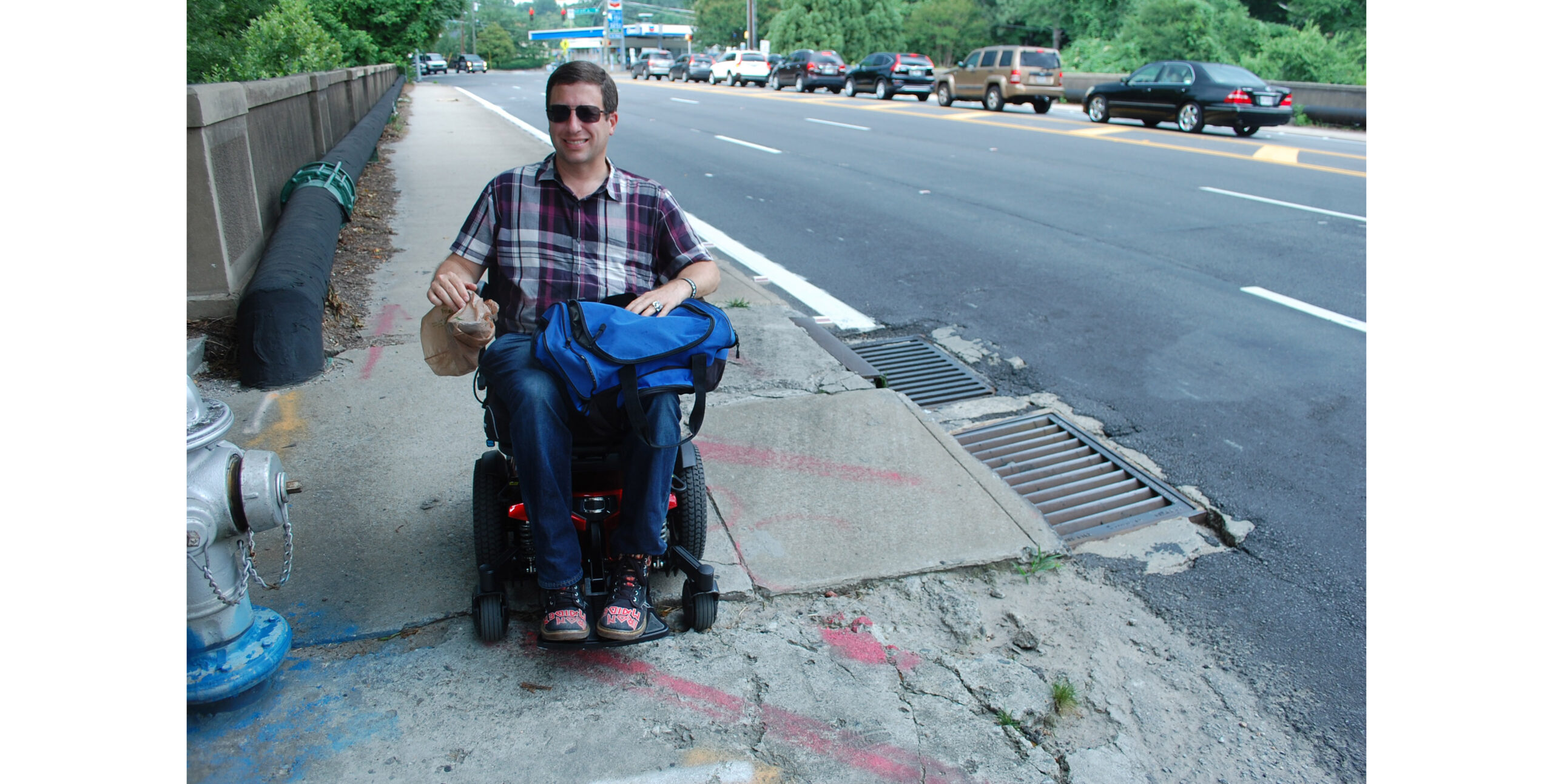Lawsuit: Atlanta’s Broken And Blocked Sidewalks Violate Federal Law

James Curtis is part of a class action lawsuit arguing that sidewalks in Atlanta are out of compliance with the Americans with Disabilities Act.
Stephannie Stokes / WABE
James Curtis leaves his Buckhead apartment and heads south on the sidewalk along Peachtree Road.
His motorized wheelchair zigzags a little.
“I’m new to a power chair,” he says. “I’m not a very good driver.”
Curtis is one of the plaintiffs in a lawsuit that claims sidewalks in Atlanta are violating federal law, and this is his usual commute.
He used to take a manual wheelchair to the Shepherd Center, where he volunteers. The hospital is about a mile south of his apartment. Recently he had to switch to this power chair.
“The sidewalks are so broken up that it’s hard on the chairs and it’s hard on my shoulders,” Curtis said.
That may not be the worst part about the sidewalks.
As Curtis travels down Peachtree Road, he comes to an area that became dangerous for him last week.
“I was coming this way,” he says. “I was trying to get around this utility pole.”
The utility pole is in the middle of the path. As Curtis maneuvered by it, he cut too close to a landscaped section between the pavement and the road.
“I ended up going over the edge,” he said.
He got stuck there, with cars speeding past next to him.
All of this is why Curtis joined the federal class action lawsuit against the city.
It argues that, through sidewalks that are blocked, crumbling and without ramps, Atlanta is discriminating against people who have disabilities.
It’s just the latest legal battle over sidewalks in the country.
In the last few years, Seattle and Los Angeles have settled similar cases and agreed to hundreds of millions of dollars in repairs.
Atlanta’s has so far only offered a statement regarding the lawsuit against the city.
The statement said the city is already working to improve sidewalks to meet federal guidelines. And its committed to making Atlanta accessible.
According to Curtis, who has a degenerative nerve disease, the issue stems from a lack of awareness of what it takes for people with disabilities to get around.
“If you don’t have to think about it, it’s out of sight out of mind,” he said.








